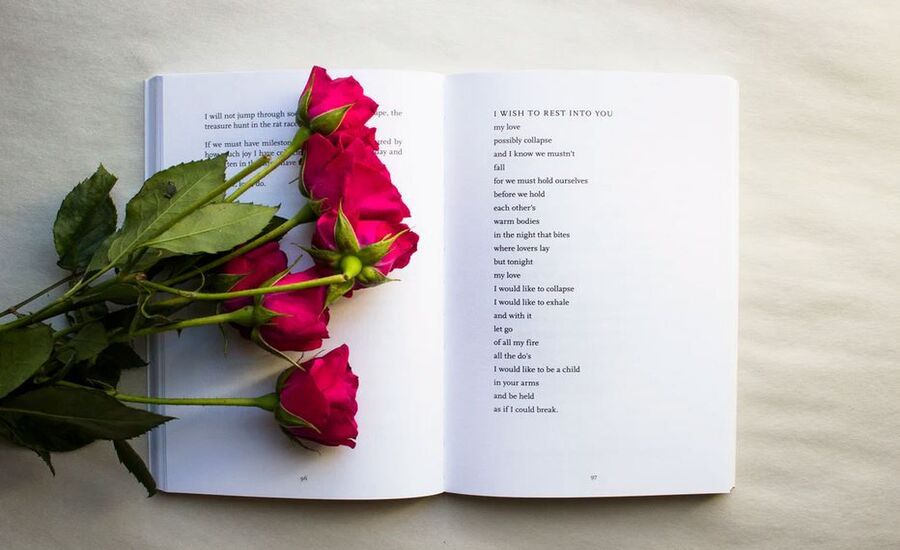Everything You Need to Know about the Power of Poetry
Poems – some like them, and others don’t. Nonetheless, poems can make us understand ourselves and the world better. The best part about poems is that you can express yourself with little words. There are various forms of poetry out there – some of them rhyme, and others don’t. Some are long, and others are short.
Now, it doesn’t matter how you thought about poems and how you read poetry before; you should know that there is a poem for everyone out there.
Why is Poetry Good For You?
Loads of studies have been done on poetry to determine how reading poems affect the brain. According to studies, poems have a powerful impact on the listeners compared to when listening to music. Some studies indicated that listeners of poetry got goosebumps, and their heart rate increased as they listened to poetry.
When it comes to brain studies, research has proven that poetry enables readers to form new perspectives, which can prove inspirational in its own way.
Poems Impact the Brain in Different Ways
The amazing aspect of poetry is that it doesn’t require the listener or reader to get due training regarding recognizing poetic harmony. The truth is that the human brain is hardwired to assess poetic harmony without effort.
On that note, here are some different ways that poetry is amazing for the human brain:
Emotional Response
Poetry incorporates the power of words, which can trigger an emotional response in the human mind. The thing is that when a person listens to or reads poetry, the regions of the right part of the brain that are linked with emotions and rewards tend to light up and get active. So, emotional response is almost always guaranteed when reading poetry.
Emotional Intelligence
According to the latest studies, emotionally intelligent people are more likely to succeed in life. In other words, emotional intelligence is another measurement used to determine the success rate of a person in general life and professional life.
On that note, poems aren’t only about written words, but these are essentially about the ability to read between the lines and fill up the spaces with one’s own perception and understanding of the underlying sounds, emotions, and meanings.
When the mind has to make an effort to deeply analyze and put together the underlying meanings that the poet might have left unsaid for the readers to decipher, the brain has to get between the spaces to get the meaning; it essentially functions at its highest potential, which then boosts the overall cognitive ability.
Encourages Self-Analysis
Reading poetry has the power to encourage self-reflection along with boosting one’s memory. According to studies, when one reads poetry, a particular region of the brain lights up that is linked with daydreaming. This aspect explains why poetry tends to stick with the reader to the point that they might re-read and memorize the words.
It is easier to memorize poems than other forms of written texts, which means that poetry can actually boost the memory of an individual, and they become more receptive to the words and the information the words carry.
Poems Help You Being More Empathetic
When you start to read poetry, you will begin to experience how integral words are in your experience and being sympathetic with others. For instance, if you read famous love poems, you will get a sense of shared experiences. When you read poems, you will naturally prefer one over the other as you will feel one more relatable than the rest.
When you immerse yourself in the world of poetry, you don’t necessarily focus on who the poet is and what their background is – but you look at their words and how they connect and relate to you. By doing so, you will soon see yourself developing really close relationships with all of your poems.
Through poems, you will also learn about connecting with people and experiences that you wouldn’t have otherwise. Another thing that you will learn when reading poems is to look for space between the words. You will find this incredibly useful in your daily interactions as well.
A lot of times, people focus on exactly the words that came out of the other person’s mouth. A lot of the time, this aspect leads to misunderstanding, people getting hurt, and misreading intentions. Now, with poetry, you learn to look between the words, where you can add meanings and interpretations that can clear and allow for better understanding.
Poetry enables you to connect the spaces between the lines and find different ways to connect with one another.
How to Write A Poem Yourself
By now, you already know the power of words and poetry in particular, which might have inspired you to write a poem yourself. Writing a poem is quite similar to writing a story, as it starts with a central idea., such as friendship, love, death, etc.
Once you have decided on your central idea, you can choose a topic from which to select. For instance, if you have selected the topic of love, you can further narrow it down to a broken heart or a love quest. Now, it is important to mention here that when it comes to writing good poetry, the universal belief is that you should choose a topic that you have experienced yourself in real life.
So, if you are choosing heartbreak, you should think of someone or something that broke your heart at one time or another. For instance, you might have felt brokenhearted when your dog or cat died. Perhaps your grandpa died.
When you start to write a poem, focus on the subject that you want to write about. Forget about the syllables or word choice. In the first line, you might want to describe the subject. In the second line, you can describe your feelings and emotions linked with the person or object. In the third and fourth lines, you can opt for the same. You might want to focus on making the last words of the lines rhyme, and your poem will be ready.






